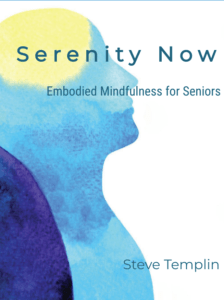The symptoms of underactive thyroid function, starting with weight gain and low body temperature, dry skin, depression, constipation, fuzzy thinking, fatigue, headaches, high cholesterol and fibromyalgia, are epidemic. Thyroid experts suggest that up to 90% of the American public suffers from hypothyroidism.
Unfortunately, the blood tests that serve as the medical standard for diagnosing thyroid illness are inadequate and allow many hypothyroid individuals to believe that their thyroid function is normal. Then, nothing is done to address the root cause of their symptoms.
One of the best ways to diagnose hypothyroid illness is with a simple home test. Your morning basal temperature, the temperature taken when you first wake up, should routinely be above 97 degrees. A low basal temperature combined with a number of hypothyroid symptoms is a good way to suspect the illness.
Once the diagnosis has been made the real challenge is in how to remedy the situation.
One of the causes of low thyroid function is a dietary deficiency of iodine. Another apparent cause is the overabundance of toxic chemicals in our environment, namely halogens and specifically bromide. The problem is that toxic bromide attaches to iodine receptors and blocks the health giving benefits of iodine in the thyroid and other tissues as well.
When there’s either a deficiency of iodine and an excess of toxic bromide or other halogens or both, the function of the thyroid and other glands suffer.
Thy thyroid can no longer adequately produce thyroid hormone and is much more likely to develop cysts and nodules and potentially thyroid cancer as the iodine deficiency remains unaddressed.
The thyroid gland requires more iodine than any other bodily tissue. The second most requirement for iodine goes to the breast, while number three is the prostate. Research is suggesting that when iodine is deficient these glands can initially produce cysts and then eventually become tumors.
Iodine to the Rescue … or not!
It would seem that the solution would be to supplement with iodine. However, there’s a debate that’s existed for decades concerning the safety of supplementing with iodine. While that debate is beyond the scope of this brief article, it can easily be referenced on the internet and in popular books on the subject.
Here is an in-depth two-part article on iodine and autoimmune thyroiditis by Mario Renato Iwakura, an engineer and thyroid patient himself, that can be found here part one, and here part two.
The essence of the debate which I’ll note here is that iodine has the potential to injure thyroid function and even cause the autoimmune thyroid disease called Hashimoto’s Thyroiditis. That’s a very good reason to be careful when considering the use of iodine.
However, this only appears to be a problem if iodine is supplemented at too high of an initial dose and without a number of essential nutritional cofactors, namely selenium, Vitamin C, magnesium, unrefined salt, and adequate hydration. A safe iodine loading protocol that’s combined with these companion nutrients allows for the safe use of iodine supplementation.
Having read what I found on the topic over the past three years, both pro and con iodine supplementation, it appears that iodine supplementation is necessary because 93% of the population is deficient, and it can be done safely but only with the inclusion of the companion nutrients.
Common signs of iodine deficiency are also the signs of low thyroid function, as well as cysts, soreness, and heaviness of breasts.
Years ago I used a 24-hour urine test which was and is still the medical standard for assessing iodine requirements. During the time that I used that inconvenient and costly test all of the patients I tested showed a severe iodine deficiency. Dr. David Brownstein, who’s tested many thousands of patients with that test, has found that 93% of those tested are deficient.
Iodine is not only helpful in treating the thyroid gland, but in treating the breast, prostate, and many other tissues. An excellent book about iodine and breast health by Dr. David Derry is Breast Cancer and Iodine: How to Prevent and How to Survive Breast Cancer.
In summary, low body temperature and a number of low thyroid and iodine deficiency symptoms are signs to consider the safe use of iodine supplementation.
If you want to be guided through a safe, comprehensive program for natural thyroid support please call my office.
This is the second of a series that looks at the underlying causes of much illness.
The first post focused on how Heart Intelligence can support us in reducing the stress-related causes of illness. For our purposes here, stress tends to shut down thyroid function in favor of stress-related adrenal function and the perils of high cortisol.
The next post will focus again on thyroid function and the drug-free options for treatment.

 Steve is a retired Doctor of Oriental Medicine, Acupuncture Physician, and HeartMath Trauma-Sensitive Certified Practitioner with over 35 years of clinical experience in the fields of Energy Medicine, Energy Psychology, and Biofeedback.
Steve is a retired Doctor of Oriental Medicine, Acupuncture Physician, and HeartMath Trauma-Sensitive Certified Practitioner with over 35 years of clinical experience in the fields of Energy Medicine, Energy Psychology, and Biofeedback. 